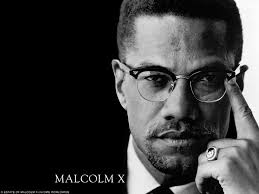The Autobiography of Malcolm X: A Journey of Self-Discovery
Introduction
Malcolm X’s autobiography is a potent monument to the fortitude, bravery, and development of one of the movement’s most important characters. Readers go through Malcolm X’s biography via his own words, from his turbulent upbringing to his rise as a prominent supporter of social justice and Black liberation. This article explores the complex biography of Malcolm X, including details about his setbacks, victories, and lasting influence.
Unveiling the Autobiography of Malcolm X
Early Life and Struggles
Malcolm X experienced hardship and struggle as a child. He was initially exposed to the harsh reality of racism and prejudice in America as Malcolm Little, born in 1925. Malcolm was exposed to the ugly reality of racial injustice at a young age since he was raised in an active household.
Islamization
Malcolm X’s discovery of the Nation of Islam’s doctrines when he was incarcerated was a turning point in his life. He used the surname “X” to represent his lost African identity after converting to Islam, which caused a significant change in his perspective.
Become a Leading Figure in Civil Rights
After being released from jail, Malcolm X advanced fast through the Nation of Islam’s ranks, enthralling audiences with his ferocious oratory and unshakable dedication to Black emancipation. Malcolm was an outspoken opponent of racial integration who supported Black communal sovereignty and self-defense.
Deviate from the Islamic Republic of Pakistan
Malcolm X initially supported the Nation of Islam, but his disenchantment with its leadership ultimately resulted in a well reported split. Malcolm had a time of deep introspection and change after leaving the organization, when he went on a trip to Mecca that altered his perception of Islam and his ethnic identity.
History and Significance
Malcolm X left behind a lasting impact that goes far beyond his tragic passing in 1965. Generations of activists and academics throughout the world are continually motivated by his unshakable dedication to Black emancipation and self-determination. Malcolm X leaves left a potent tribute to the ongoing fight for justice and equality through his autobiography.
Exploring Key Themes in the Autobiography
Identity and Self-Discovery
Identity and self-discovery are major themes in Malcolm X’s story. Malcolm’s path, from his early battles with racial identity to his conversion to Islam, is marked by an unwavering pursuit of self-awareness and empowerment.
Activism and Social Justice
Malcolm X was a devoted supporter of Black freedom and social justice throughout his life. His unreserved criticism of institutional racism and oppression still has resonance in today’s racial equality movements.
Spirituality and Religion
Malcolm X’s political action and spiritual path are closely linked. His conversion to Islam gave him a feeling of direction and community as well as direction in his pursuit of justice and emancipation.
Read More: The Ultimate Guide to the Best Biographies of All Time
Knowledge and Self-determination
Malcolm X, a fervent supporter of education, highlighted the value of critical thinking and self-education. His legacy continues to be anchored by his dedication to using knowledge to benefit Black communities.
Adaptability and Perseverance
Malcolm X persevered in his quest for justice in the face of many challenges and disappointments. All those who keep up the fight against injustice might find encouragement in his fortitude in the face of hardship.
Frequently Asked Questions
What inspired Malcolm X to write his autobiography?
Malcolm X was inspired to write his autobiography in order to impart his life narrative and wisdom to a global audience. He saw it as a chance to correct people’s misunderstandings about his experiences and ideas.
What effects did Malcolm X’s Hajj to Mecca have on his outlook?
Malcolm X had a life-changing experience on his Mecca trip that made him reevaluate his preconceived notions about race and identity. His assumptions about racial supremacy and inferiority were dispelled when he saw worshippers of different races and backgrounds united in harmony.
What part did Malcolm X play in the struggle for civil rights?
In the civil rights struggle, Malcolm X rose to prominence as a leader who promoted Black empowerment and self-defense. Although he started out espousing separatist beliefs, he eventually came to support a more inclusive strategy for social change.
What were some of the most significant obstacles Malcolm X had to overcome throughout his lifetime?
Throughout his life, Malcolm X encountered many difficulties, such as institutional racism, jail, and internal strife within the Nation of Islam. In spite of these challenges, he never wavered in his resolve to strive for equality and justice.
What effect did Malcolm X’s murder have on the civil rights movement?
When Malcolm X was killed in 1965, the civil rights movement was rocked and there was a vacuum in leadership and campaigning. Nonetheless, his impact persisted in motivating activists and academics of later generations to continue the fight for racial justice.
What lessons may be drawn from the autobiography of Malcolm X?
The autobiography of Malcolm X provides insightful information about the nuances of race, identity, and social justice in the United States. His experiences and viewpoints offer readers a clearer understanding of the continuous struggle for emancipation and equality.
Conclusion
In conclusion, Malcolm X’s autobiography is a moving account of his tenacity, change, and activism. Malcolm X inspires readers to address issues of racial injustice and inequality by shedding light on the challenges and victories faced by the Black people in America through the prism of his personal experiences. His unshakable dedication to empowerment and social justice is still felt in today’s equality campaigns.
By exploring Malcolm X’s story, readers are prompted to consider their own responsibilities in the ongoing fight for a more fair and equitable society in addition to being urged to observe the intricacies of his life. The teachings from Malcolm X’s autobiography serve as a timeless reminder of the critical role that tenacity, solidarity, and group action play in the quest of justice for all as we traverse the difficulties of our day.
